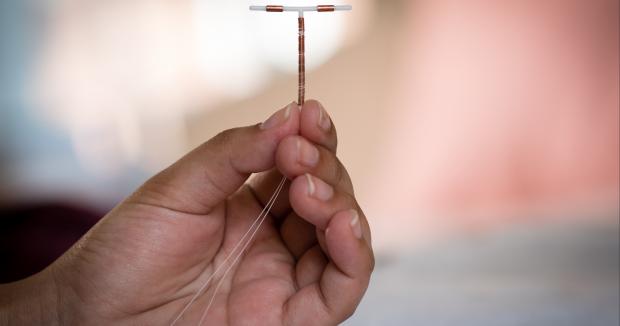Will an IUD Make Your Period Go Away?

It may depend on what your period was like before you got one.
Hormonal IUDs sometimes make periods lighter and shorter. For about 1 in 5 people using the Mirena or LILETTA IUDs, periods stop altogether after a year.
But is it just random chance as to whether your period stops or not? Research from the massive Washington University in St. Louis CHOICE study (go Wash U!) shows that there are some factors that make you more or less likely to stop bleeding with a hormonal IUD.
The study looked at the 1,802 women who used a Mirena IUD for at least a year. Results of the study are below. If you have more questions about how an IUD might affect your period, talk to a provider at your nearest The Right Time health center.
Lighter bleeding = higher chance that periods will stop
After using their IUD for a year, women with light and normal bleeding were most likely to stop bleeding altogether, those with light (21%) and normal (16%) flows reported no periods in the last six months. Only 10% of those with moderately heavy periods and 5% of those with heavy periods reported their period going away.
Perk, or no go?
For some, not having a period is a benefit, while others may prefer to have one for a number of reasons, including regular reassurance that they’re not pregnant. If you’re considering a hormonal IUD and feel strongly one way or another, this study could help you figure out whether to take the leap.
BTW, if you like the idea of not having a period but you don’t think the IUD is the best option for you, check out continuous use of the pill—after one year up to two-third of women’s periods stopped altogether.
Updated March 2020
Related Content


Article
What Does “Dual Protection” Birth Control Mean?It usually means using a condom along with another birth control method.

Article
January is Cervical Cancer Awareness Month: What to Know About HPV and ScreeningA positive HPV test can feel scary, but healthcare providers at your nearest The Right Time clinic can help.

Article
Own Your Well-Being in 2026 with These 3 Sexual Health ResolutionsFirst: prioritize preventative sexual and reproductive health care.



















